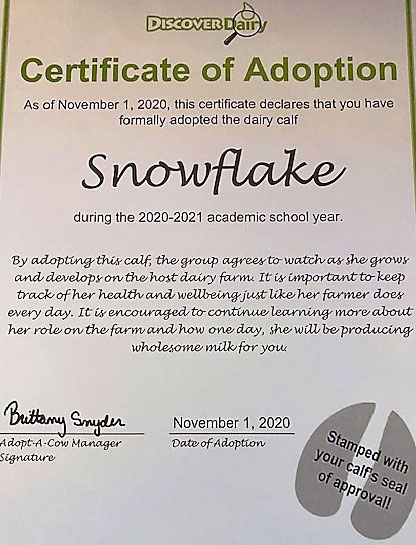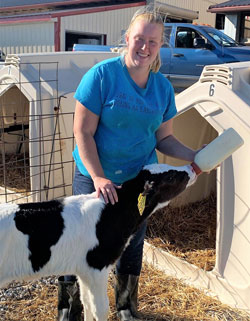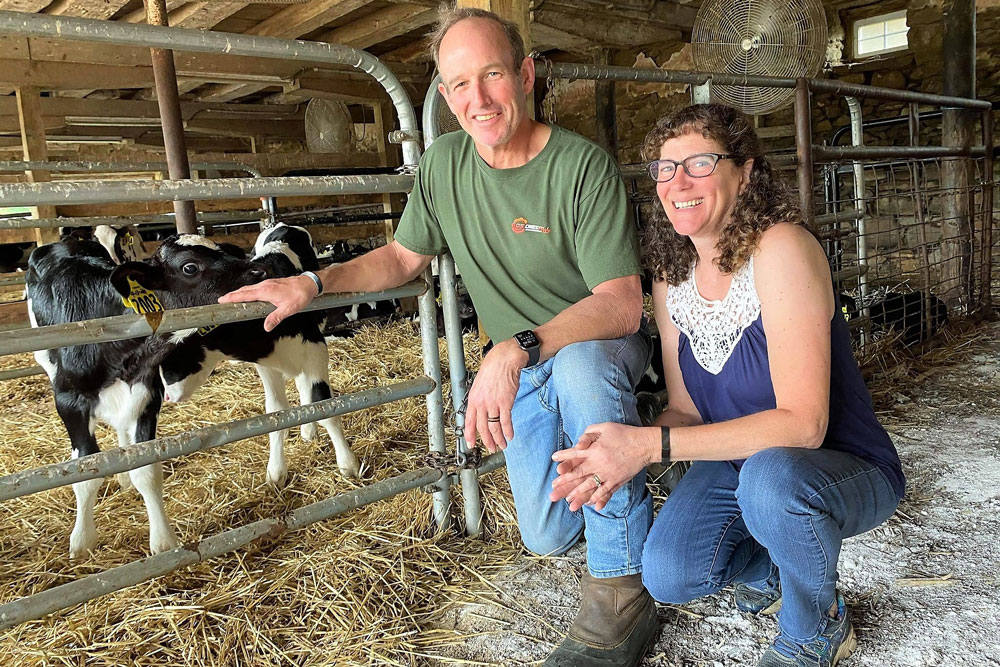Kent City — Where does milk come from? Ask Kent City preschoolers. They not only know, but they also would love to tell you about their very own adopted heifer — which they know is the proper term for a girl calf.
The Holstein, named Snowflake, was born Oct. 2, 2020, weighing 88 pounds. She was adopted by the preschool class in conjunction with the Great Start Readiness Program, a state-funded preschool program administered by the Michigan Department of Education.

This special program runs from the fall through May, said Chelsea Fritts, the GSRP associate teacher in Julie Petruska’s Kent City preschool class.
An initiative of the Pennsylvania-based Dairy Excellence Foundation, the adopt-a-calf program is free for students across the nation. Its intent is to increase knowledge about the milk industry. Every class that adopts a cow receives age-appropriate activities to learn more about this work, said Fritts.
In Kent City, the preschoolers have spent time learning about Snowflake’s farm in Pennsylvania, owned by Walt and Ellen Moore. Their farm is home to more than 1,000 milking cows.
The class also communicates on a fairly regular basis with stock manager Caitlyn Degnerm, or “Farmer Caitlyn,” who said she “loves working with the calves.” Farmer Caitlyn sends updates on Snowflake’s growth, and the students were thrilled to receive an official certificate of adoption.

In addition to learning about milk farming and food service, Fritts said the experience is a good starting point for vocabulary words, writing prompts and conversation starters. As the children learn to write, they often choose to write about Snowflake, and one student’s suggestion that they write letters to the heifer became a school project.
Conversations with the preschoolers revealed that none of the classmates live on a farm with cows, but many were able to share their knowledge about where food comes from. One student said their family has chickens; another said, “We used to have pigs, but they are bacon now.”
Even though the Kent City preschoolers live in a rural area, they are enjoying and learning from this introduction to farming, said Fritts.











